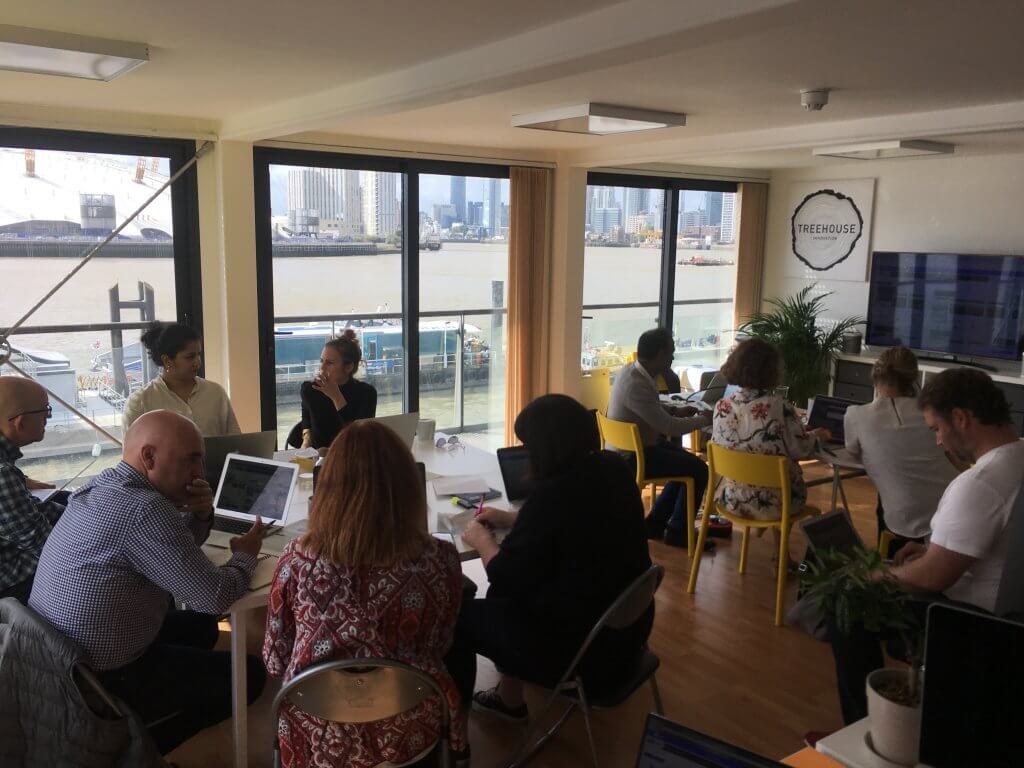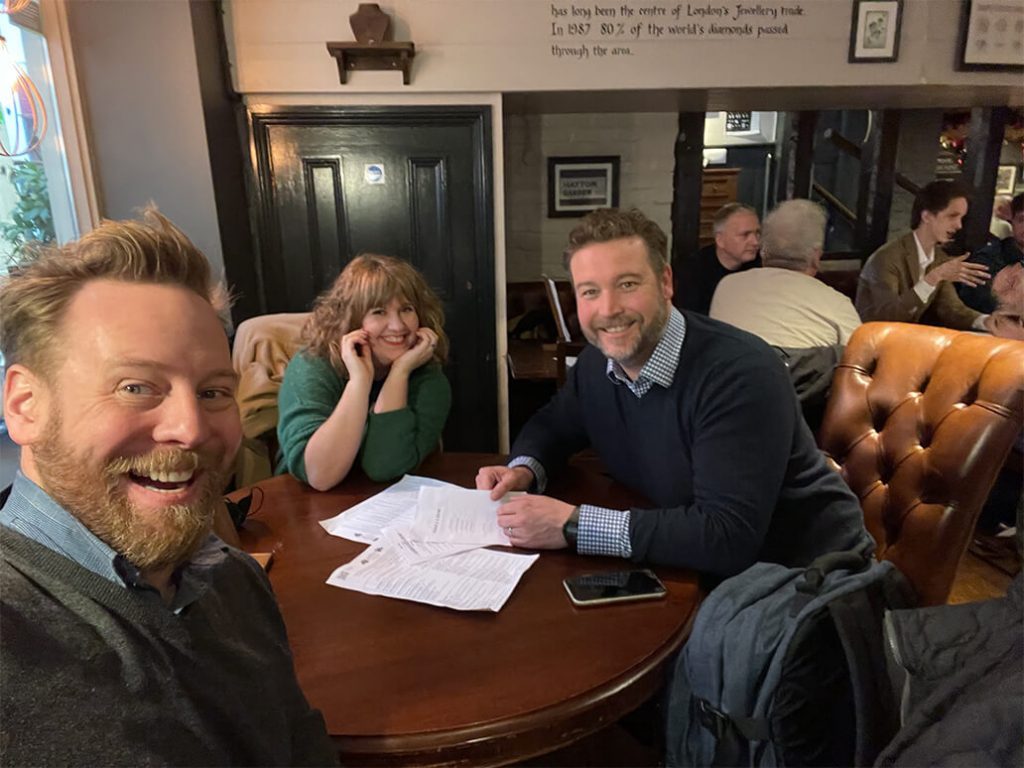8 lessons I’ve learnt from over a decade running a business
You learn something new everyday when running a business. That’s one of the many reasons I love it.
Our ten year anniversary here at Treehouse technically happened in 2020. But, as you might expect, we were a bit too busy dealing with the reality of living through a pandemic at the time to stop and mark it.
So now feels like the right time to share some of the lessons I’ve learnt during more than a decade running this business.
In summary: It’s been an absolute blast. Huge thanks to our team, clients, friends and partners who made our first ten+ years so great. Here’s to the next decade!
1. Your people create your culture
When we started building our team, we started with the culture first. Sometimes we added people to the team that we already knew as friends and colleagues, and other times we recruited to specific roles. But regardless the thought was always: Will this person be a good fit?
Of course their skill set matters too – a lot – but the culture fit is what makes it possible for those skills to manifest into something great. We’re looking for a sense of humour, people who are self-starters, autonomous, and genuinely passionate about what we’re doing.
When you have a business that’s as small as ours (there are around 20 of us) and you’re doing as many different things as we are – from consulting projects and training programmes, to software and assessment products – you can’t have a management layer. There’s no budget or space for one. And you can’t have a CEO who’s trying to micromanage everybody either.
So what you need is a team of individuals who take charge and who are accountable for getting things done. It’s about owning outcomes and not just being an order taker.
We have some more junior and some more senior people, but everybody takes charge of what they’re doing. Our people aren’t afraid to disagree with one another or say what they think, because they know we’re all working towards the same goals. That culture really works for us.
2. Keep revisiting your strategy
It’s something we say to our clients a lot, and it’s true for us too: In a fast-moving environment, you’ve got to be ready to pivot and fast.
So we revisit our strategy all the time. We’re a products and consultancy business, so we’ve got to keep reviewing our product-market fit and keeping an eye on how our customers’ needs are changing. The only way you can know what your clients want is by listening to them. You’ve got to keep your ear to the ground because if you don’t you could suddenly find you’ve missed an opportunity.
We’re in the process of setting ourselves OKRs (Objectives and Key Results) at the moment, to help us measure if our strategy is working. Because what you can’t do is just go with your gut. You can easily tell yourself – and we’ve done this – that you’ve had a brilliant idea your customers will love, but then when you put it out to market, you find that they don’t, and that actually some other idea you’d otherwise have written off has real potential.
It’s been so important for us to take our own medicine and apply human-centred design to the way we run our business. Because when we do that, just like any other company, we come up with better, more profitable ideas. And when we don’t, we lose time, money and momentum. We have to practice what we preach!
3. You’ve got to learn when to say no
We’re an excitable team, and I like that about us. We love coming up with new ideas and working together to make them happen. I never want us to lose that.
But, like a lot of businesses, we can get over excited about too many things at once. You can’t chase after every new shiny thing that comes your way. You’ve got to focus.
That’s been a key lesson for us. Spotting when an opportunity is right for us, and when to say no. It’s hard, but if you say yes to everything, you end up spreading yourselves too thinly, which kills your ability to focus on anything. And that’s no good for anybody.
4. Partnerships are everything
You never know what’s going to happen – the last couple of years have taught us all that.
Your partners are one of the best defences against uncertainty and disruption you can have. Together you can use your shared talents, perspectives and experience to navigate whatever challenge comes your way.
Not only that, but partnerships can also open doors to a world of exciting opportunities. For example, it’s been fantastic to work in partnership with Jeanne Liedtka and the co-authors of ‘Experiencing Design – The Innovator’s Journey’ to develop design thinking training and support to help people put lessons from the book into practice.
My advice would be: You don’t want to do this alone. Having multiple ears on the ground and people you can call on makes a huge difference.
5. You need a strong, mission-aligned leadership team
I’ve learnt how important it is to have a strong leadership team. They’re your confidantes, they share the responsibility with you, and they care just as much as you do about getting great outcomes for clients and for the business.
Our business is all about helping people use innovative, human-centred design to find better solutions to problems that matter. It’s absolutely integral that we all believe in what we do, otherwise how can we expect our clients to?
We have real alignment in our leadership team about how we do what we do. For example, we’re big believers in helping our clients become self-sufficient, and able to keep using design in their work for the long-term after we’re gone. It’s not everybody’s approach, but it’s ours.
It’s the leadership team’s job to protect our shared approach to everything we do. Because if you do bring people on board who aren’t aligned, it really jars. When you have a small team, one person is a substantial addition to the overall team, so you’ve got to get it right.
6. You have to find the right balance of being a team player, and focusing on what you’re good at
When you run a company that’s offering both products and services, as we are, you need a mix of skills. And when you’ve got a small team, people inevitably end up wearing multiple ‘hats’, which is both essential and healthy, to a point.
But the risk comes when people – because they’re enthusiastic and engaged – take that too far and it stops them from being useful. They become collaborative butterflies – they’re part of everything, they’re in every meeting – and they don’t have time to do the work they need to focus on.
So it’s crucial to get that understanding of where your tipping point is. Finding the balance between having people wearing multiple hats and focusing on their specialisms is key.
7. Knowledge silos can happen anywhere
It’s easy to assume when you’re running a small company that it’ll be easy to keep everybody up to date with what’s going on.
But no matter how big or small you are, people tend to just focus on what they’re doing. You can quickly find yourself in a situation where your colleagues are unaware of key projects happening in the business.
It’s particularly tricky when you’re working remotely, as you don’t have regular face-to-face informal chats. Nobody wants more meetings in their lives, so we’ve tried to ensure the ones we do have help us stay in touch.
We have formal all-hands meetings to share big strategic updates, and a weekly 15-minute informal catch up where we each share our ‘Best two minutes of the week’. It’s all about finding the right way to keep the team connected.
8. More than anything else, business is about relationships
Everything we do here at Treehouse happens because of the relationships we build. We have truly close connections to our clients. I think it’s what makes us a valued part of their teams, and I know it’s a major reason we all enjoy our work.
When you have limited resources and time pressures, you do have to figure out where to focus your attention. I’m not going to pretend to have the answer to that, but what I will say is that for us, our approach always comes from the culture we want to create for ourselves and for our clients.
Big or small, we treat every client and project equally, because we know that it’s the close connections we build with people that make us who we are and that get the best results for everybody. No amount of slick marketing or sales that can ever replace that.
I can’t wait to see where the next decade takes us!



